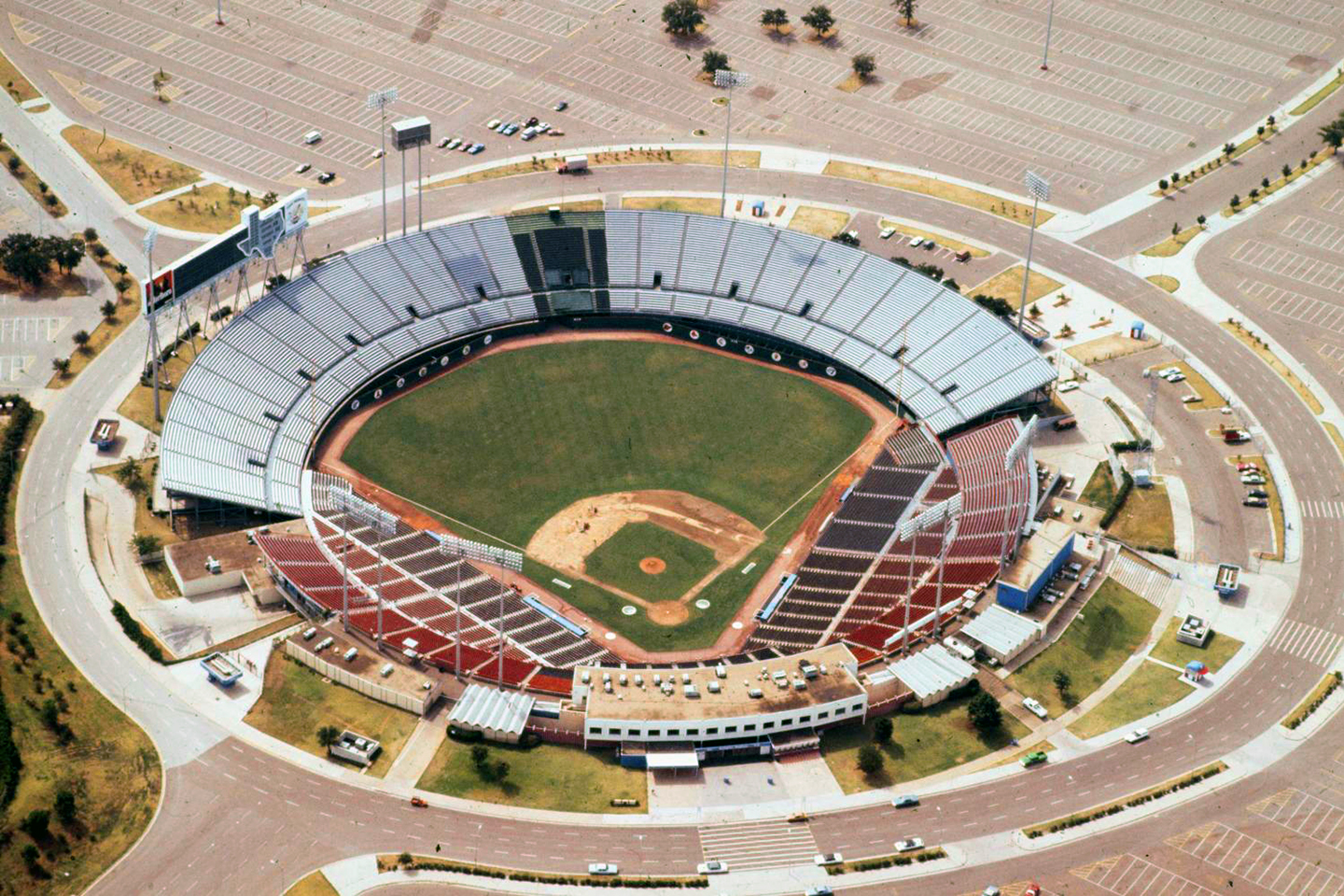Riverside Site Could Delay Rangers' Plan for New Stadium
Fort Worth Star-Telegram, July 13, 1990

By CHERYL PHILLIPS
Fort Worth Star-Telegram
ARLINGTON - The Texas Rangers, who have said they would like to be in a new baseball stadium for the 1993 season, would have to wait at least two more years if they chose a northeast Arlington site along the Trinity River, Arlington Chamber of Commerce President Ted Willis said.
The Rangers have asked the chamber about the 2,200-acre Riverside property, an undeveloped tract of land in the Trinity River flood plain.
"You wouldn't want to build a stadium until you get the roadwork and infrastructure in there to feed the thing." Willis said. "I think '95 is probably the earliest you could put a stadium out there."
Buying the land and preparing it for a stadium — including road construction — would cost $78 million, according to a January letter from the chamber to Rangers President Mike Stone. The chamber said in the letter that the city and county could contribute $7.6 million to offset that expense.
The chamber also said in the letter that the city "might be willing to consider approving the formation of a Public Improvement District whereby tax-free bonds could be issued for 100 percent of the total cost."
Although the time frame for developing the Riverside property conflicts with the Rangers' 1993 goal, the delay doesn't necessarily eliminate the site from consideration, Stone said.
"We want to do this right, whether it's '93, '94, '95 or 96." Stone said.
He added that the Rangers would prefer to be in a new stadium by the 1993 season so that the club could generate more revenue. One of the problems cited with the existing stadium has been the low number of higher-priced infield seats, which the Rangers say are in demand and which a new stadium would have.
The real motivation... is to do it correctly and that may take more time than some of us would like," Stone added.
The Riverside property, located north of the Trinity River and east of North Collins Street, is one of several locations in Tarrant and Dallas counties being considered by the Rangers.
Two Rangers owners, managing general partner George W. Bush and limited partner Richard Rainwater, have filed separate bids to purchase the property.
But even purchasing the property could take time, said Willis and other officials. The land is owned by Meridian Capital Corp., a subsidiary of Meridian Savings Association, which has been in receivership with the Resolution Trust Corp. since April 1989.
Because Sunbelt Savings has a $100 million lien on the property, a sale can't go through until the deed is cleared of that note, said Teresa McUsic, an RTC spokeswoman. She said that Sunbelt could either foreclose on the property or Meridian could deed back the land to Sunbelt in lieu of a foreclosure.
Tom Wageman, president and chief executive officer of Sunbelt, said he couldn't comment on what action the thrift will take regarding the lien. He added that Meridian is still in control of the property and that the bids are handled through that organization and RTC.
However, according to Bill Harvey, a Fort Worth real estate broker who said he worked on Rainwater's bid, the bids also were supposed to be submitted to Sunbelt. Harvey said Rainwater chose not submit his bid to Sunbelt after he learned of Bush's interest in the property.
Attempts to reach officials with Meridian for comment were unsuccessful.
Buying the land is just one of several potential delays in developing Riverside, other officials said.
The U.S. Army Corps of Engineers has authorized reclamation work on the Meridian property, but a new owner probably would have [to] get approval from the corps because the plans would likely be different from Meridian's, said Ron Ruffennach, a spokesman with the Fort Worth division of the corps.
No one has contacted the corps about the property, Ruffennach said.
If new permits have to be acquired through the corps, the development potential of the land could be hurt drastically, said Harvey, who owns land near Riverside.
Harvey added that costs associated with getting approval from the corps, including the likelihood of paying for a new environmental impact study, could deter a potential sale. No cost estimates were available for such a study.
"We'd like to see that Meridian tract developed but we don't think there's anything imminent," Harvey said.
Three separate road projects also need to be completed before a stadium would be feasible, according to the letter from the chamber to Stone.
Of the necessary road improvements, only one, the widening of Texas 157, is in the planning stages. But work on [the] highway isn't slated to begin until 1995, said Bill Page, a spokesman with the state highway department.
The two-lane highway could be widened to a six-lane divided highway earlier if traffic demands make it a higher priority, Page said. The state will pay for that project, the chamber says.
Two other roads would need to be extended through the property as well, said Marshall Elizer, director of transportation for Arlington. The letter from the chamber indicates that the developer would be responsible for paying for those roads.
And so far, the extensions of Stadium Drive north and of Post and Paddock roads west through the property are only in the conceptual stage, Elizer said.
One other option included in the city's yet to be approved thoroughfare plan, would be the construction of a Trinity Freeway, which would replace Post and Paddock roads as an east-west arterial, Elizer said.
If there was enough interest in building the roads, it could be put on a high priority for the city, Elizer said.
"It can be done in a fairly short order, if you get the right interest behind it and funding behind it," Elizer said.
According to the January letter, the estimated development cost of $1.44 per square foot — a total of $ 78 million — could be reduced by 14 cents per square foot after contributions to the infrastructure by the city and county. The estimated development cost includes a projected $13 million purchase price for the Riverside land.
The Rangers have said they will not make a decision until fan surveys are completed and analyzed, team officials have said.
Locations that have been mentioned as possible site[s] are at the existing location in central Arlington; in downtown Dallas near the Farmer's Market; in west Dallas County on Interstate 30 near Loop 12; in Irving next to Texas Stadium; at the south entrance to Dallas/Fort Worth Airport off Texas 183; at the north entrance to D/FW along Texas 121; and in Plano.

